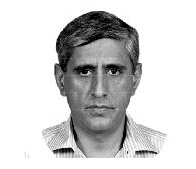RAASHID WALI JANJUA
THE term political economy means how power is articulated and resources distributed amongst several segments of society, various state institutions, and sectors of economy. It simply is the pattern of distribution of wealth and income in society by those who wield political or coercive power in a country. It helps one understand as to who controls the power, influence and wealth in a country. It is not a stand alone event but a combination of process, trends and relationships that shape the pattern of national resources allocation and distribution of wealth. It is also a study about the most dominant forces in a state that control and influence the national economy through a combination of political power, influence peddling and plain coercion. For a country like Pakistan which, contrary to popular perception, has been experiencing periods of sustained growth, it is mind-boggling that its human security indices have remained below than even the low income countries. Since last seven decades Pakistan’s economy has grown consistently except the last fiscal year ie 2018-19. As per Akber Zaidi Pakistan’s per capita GDP that was $1652 in 2017-18 fell to $1516 in 2017 and is expected to decline to approximately $1400 in the current year. The growth rate that was 5.5 % in 2016 has declined to 2.8% in the current year. The above is accompanied by the dip in human security indices that continue to slide as Pakistan with a HDI of 0.550 stands at 147th position in the world. The domination of elite to capture state resources through concessional policies in their favour has spawned a culture of entitlement wherein the few lord over the many, perpetuating a cycle of inequality that breeds poverty and under development. Pakistan realizes only1/5th (20%) of national tax revenue as less than 1% of the population pays taxes. Instead of bringing more people into tax-net through equitable taxation more taxes are imposed on a few with maximum reliance on indirect taxation. There are questions like why sectors like stock exchange and agriculture get generous tax exemptions. The cost of concessions to privileged elite calculated by independent scholars is estimated at 8% of GDP or 2.9 trillion rupees annually. The political economy requires to be transformed to break the stranglehold of the extractive elite through civic rights, free press, strong democratic civilian institutions, independent judiciary, and an independent Election Commission. What lies in the way needs to be understood. As per James Robinson those influential segments of population who have the power to make industrial policy have benefited the most from industrialization. The Japanese Liberal Democratic Party in power since 1955 is a typical example of a Party institutionalizing a system of rent accrual based on political power. Robert Bates argues in his book “Prosperity and Violence” that power and politics determine the national spending and investment. He argues that the institutions with maximum coercive powers control the spending patterns in collaboration with the political elite, believing that it was the reorganization of coercion not its extinction that underpinned the security needed for investment. In Pakistan the democratic polity has remained unstable due to weak civilian institutions. The military has been forced to influence politics and economics in alternative spells except the dictatorships when it controlled both politics and economics. As per Dr Adeel Akhter the military during civilian regimes tends to control politics and most of its attention gets riveted on politics while the civilians are left to control economics through political concessions to influential political allies. The compulsion to keep politics stable results in political concessions like development funds to MNAs, tax exemptions to politicians with business and agricultural stakes and industrial policies benefiting the extractive “politico-business” elite. If in the benefit of national interest in keeping with Robert Bates’ model the military decides to support civilian government in establishment of a people friendly economic model the hold of extractive elite could be loosened. Why is the military not doing so? The answer as per the eminent scholar lies in external aid and geopolitics. External powers have been exploiting Pakistan’s geostrategic location for their geopolitical needs every five years or so. They use the economic aid as a leverage to get a geopolitical project running and because of which the military does not feel compelled to rely on indigenous solutions to help reform the economy. While the civil and military components of the state agree to external aid solutions the vested interests capture the state policies to extract economic benefit. The pain of fundamental reforms is therefore avoided in favour of aid propped rent seeking behaviour that benefits the entrenched political elite. The solution lies in Robert Bates’ prescription of using military’s influence to conduct fundamental economic reforms that incentivize the elite to invest in productive sectors of economy to promote export-oriented industrial activity, expansion of tax base and building of state capacity to deliver in economic management instead of relying on international donors and their expedient solutions. Having a small number of taxes for many instead of a large number for few should be the new credo for optimizing revenue generation on sustainable basis. The road to our economic turnaround lies in reformation of our political economy with the military component of the state acting as a sheet anchor and catalyst for the civilian political component’s reform efforts. — The writer,a Retired Brig, is a PhD scholar at NUST, Islamabad.










